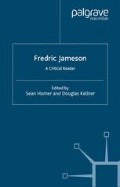Abstract
It is always wise, when confronted with a mass frenzy of interpretation, to sober up on purely formal problems. I will therefore approach Kieslowski’s philosophical enigmas by way of a little structural analysis, of the now old-fashioned kind. Actually, it is to the Russian Formalist tradition that we owe what is perhaps the most dazzling narrative analysis in the canon1. To begin with that would constitute an acknowledgment of the peculiar kinship of the episodes of the Dekalog with the short story as a form, radically different as they are in temporality and in plot resolution with the standard-length feature film, about which one does not want to decide whether its kinship lies with the novel or not, but which at least arouses very different generic expectations, that any perceived kinship with short-story form tends to frustrate (just as it is frustrated in another way by theatricality and the limitations of the filmed play).
Access this chapter
Tax calculation will be finalised at checkout
Purchases are for personal use only
Preview
Unable to display preview. Download preview PDF.
Notes
See Tzvetan Todorov, Grammaire du Decameron (The Hague: Mouton, 1969), pp. 73–75.
For a more substantlal development of these thoughts with respect to literature, see my essay “Esperimenti col tempo: realismo e provvidenza” in Franco Moretti, ed., Il Romanzo (Turin: Einaudi, 2003), volume IV, pp. 183–212.
Nimone ae iSeauvoir, La Cremonle aes aaleux (Parls: Galllmara, IyMl), p. liii.
Anare Jolles, Cinjacne Fornlen (Tubingen: Niemeyer, 19232), p. 190.
Slavoj Zizek, “When the Party commits suicide”, New Left Review, #237 (1999), p. 46.
Jacques Lacan, Le Semmaire, vol. VII (Paris: Seuil, 1986), pp. 84, 98–102.
Editor information
Editors and Affiliations
Copyright information
© 2004 Palgrave Macmillan Ltd
About this chapter
Cite this chapter
Jameson, F. (2004). Dekalog as Decameron . In: Homer, S., Kellner, D. (eds) Fredric Jameson: A Critical Reader. Palgrave Macmillan, London. https://doi.org/10.1057/9780230523524_12
Download citation
DOI: https://doi.org/10.1057/9780230523524_12
Publisher Name: Palgrave Macmillan, London
Print ISBN: 978-0-333-98209-9
Online ISBN: 978-0-230-52352-4
eBook Packages: Palgrave Social & Cultural Studies CollectionSocial Sciences (R0)

